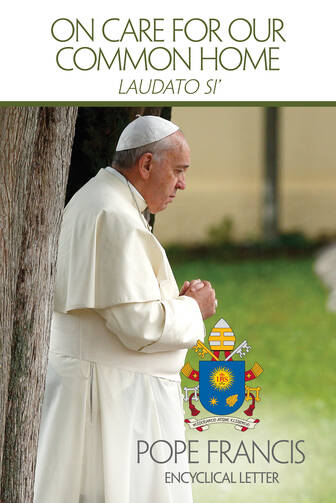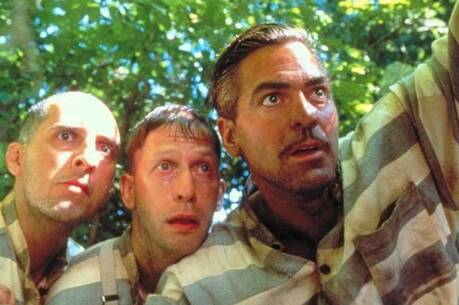It will take years to take the full measure of “Laudato Si’,” Pope Francis’ new encyclical on the environment, and assess its impact. Pope Leo XIII wrote about the rights of workers in “Rerum Novarum” (1891) in response to the Industrial Revolution, but unions still struggle to remain relevant in a swiftly changing economy. St. John XXIII warned about the dangers of nuclear war in “Peace on Earth” (1963), but world leaders continue to grapple with the complexities of enforcing a nonproliferation regime. Yet these documents marked watershed moments, when the church directed the world’s attention to a calamity that no one nation could face alone, prescribing remedies but also outlining the spiritual ills that impede progress and reform.
With “Laudato Si’,” the church now trains its focus on the plight of“our common home,” offering both an accessible summary of the climate crisis and a call to conversion. It is an authoritative document, using the power of the papacy to draw attention to the climate crisis. It is also a humble document, infused with the spirit of dialogue and engagement born of the Second Vatican Council. Quoting the Southern African bishops’ conference, Pope Francis writes, “Everyone’s talents and involvement are needed to redress the damage caused by human abuse of God’s creation” (No. 14). It is a call to action that should be taken up with urgency by individuals, churches and governments.
With the arrival of “Laudato Si’,” the voice of religion has now decisively entered the climate change debate. The document is already controversial, and not just because it accepts the scientific consensus that global warming is a result of human activity. Even before it was released, the encyclical was strongly criticized by climate change skeptics. “Laudato Si’” is a challenge to these individuals, but not only to them. It offers a deep critique of the global capitalist system and, perhaps most radically, of the absolutist notion of private property, pointing instead to “the universal destination of goods.” This idea—that property does not belong to any one person but is a God-given resource for the commonweal—has long been a part of Catholic social teaching, but it is sometimes overlooked. Pope Francis reminds us that all of creation belongs to God and is in urgent need of common care and protection.
“Laudato Si’” is also a challenge to those of us who live in developed countries. It is tempting to believe that technology holds the key to addressing the environmental crisis. Pope Francis writes that while clean energy and other technical remedies are worth investigating, they are not sufficient to the problem at hand. We must also examine our lifestyles. It will be impossible to sustain life on this planet if we all expect to live according to the dictates of first-world consumer culture.
What may be most compelling about the encyclical is the way it connects environmental concerns to other social justice issues. In a fractured world, advocates for the poor, the sick or the marginalized are often separated into camps. In some quarters, environmental advocates are distinguished from advocates for human rights because concern for our natural world is seen as different from, even less important than, the plight of the people who inhabit it. “Laudato Si’” exposes the error of this logic by offering a fully integrated theology. In the vision of Pope Francis, the people of the earth are inseparable from the ground upon which they walk. “We have forgotten,” he writes, “that we ourselves are dust of the earth (see Gn 2:7); our very bodies are made up of her elements, we breathe her air and we receive life and refreshment from her waters” (No. 2).
There are many other strands to this encyclical. It is an ambitious document that strays down some unexpected pathways. It is surprising, for instance, to encounter a critique of society’s addiction to technological devices in an encyclical dedicated to the natural world. Some of these arguments are more effective than others, but taken together they are compelling. They force the reader to think about the myriad connections that tie us together as a human family living on a fragile planet.
“Everything is connected,” Pope Francis writes in a phrase that is sure to be widely circulated and taught. The poor are connected to the rich, paying the price for the latter’s ecological malfeasance. Humans are connected to the abundant species that inhabit this planet. We are all connected to God who gifted to us this created world. If we look at our problems in this way, Francis offers us hope that we can meet the challenges we face. “Laudato Si’” redirects our attention to the spiritual resources in the Christian tradition that point the way forward. The world that needs saving, after all, is the world our Savior walked. “The very flowers of the field and the birds which his human eyes contemplated and admired,” the pope writes, “are now imbued with his radiant presence” (No. 100).









I think you are right in recognizing the lack of any coherent thought on the issues you raise. I agree with you that human sexuality and reproduction must be considered. Unfortunately, the UN Climate Conference at Paris in December is going to offer some very harsh recommendations (abortion, contraception, single-child legislation a la China). The Vatican has cast its lot with international bureaucrats who are totally opposed to Catholic teaching on the sanctity of life.
In trying to ingratiate the Church with the UN, the Vatican has embraced the phony "climate crisis." There isn't any "crisis", ecological or otherwise. There also hasn't been any global warming for the last 18 years. (Global atmospheric temperature is measured from orbiting satellites; two separate contractors process the data and provide reports on the web.)
Worst of all, the encyclical will add support to those who deny cheap electricity to the more than 1 Billion people who have no electricity at all - to refrigerate food and medicine, cook food cleanly, pump clean water, and light the home for reading and watching radio and TV.
The only thing worse than the ignorance and hypocrisy (“No branch of the sciences and no form of wisdom can be left out … this Encyclical welcomes dialogue with everyone.”) of the encyclical is the fawning nonsense of the comments selected by the Editors.
In spite of Pope Ignorant, there has been no global warming for 18 years, as admitted by the IPCC.
There has been no increase of severe weather for 18 years, as admitted by the IPCC.
Laudato si will have a very short life (let us hope); it will be quietly put away after the collapse of the UN Climate Conference at Paris in December. China, India, Poland, Brazil, Pakistan, to name a few, will have NOTHING to do with this proposed return to the 13th Century.
I suggest the editors listen to Catholics who are informed on this subject, who are trying - in spite of sycophants - to save the Church from embarrassment and ignominy.